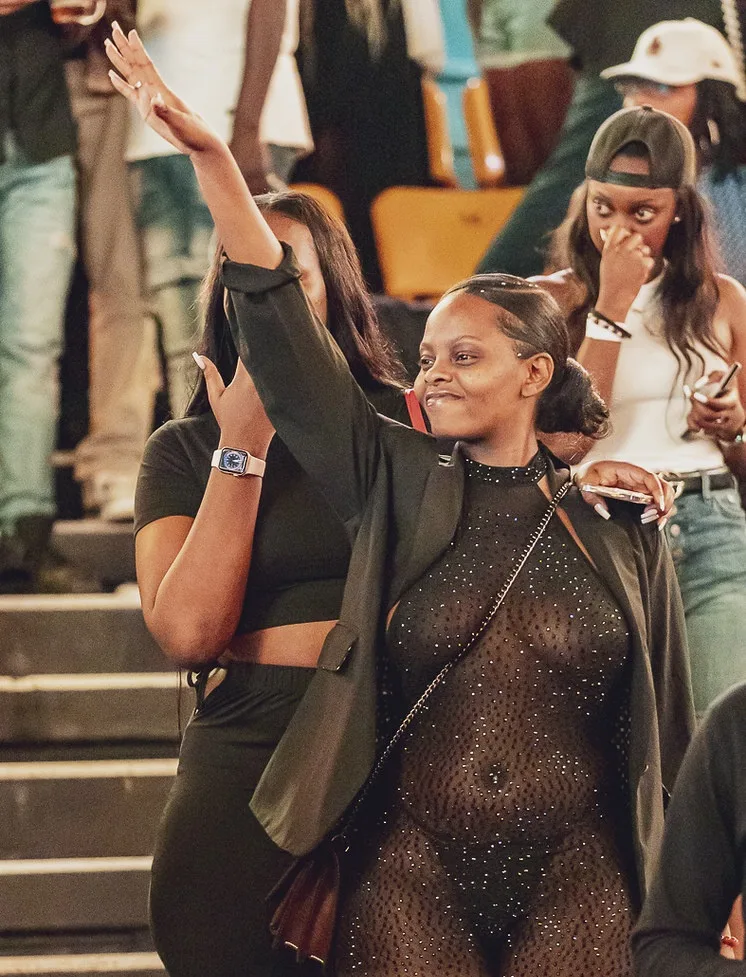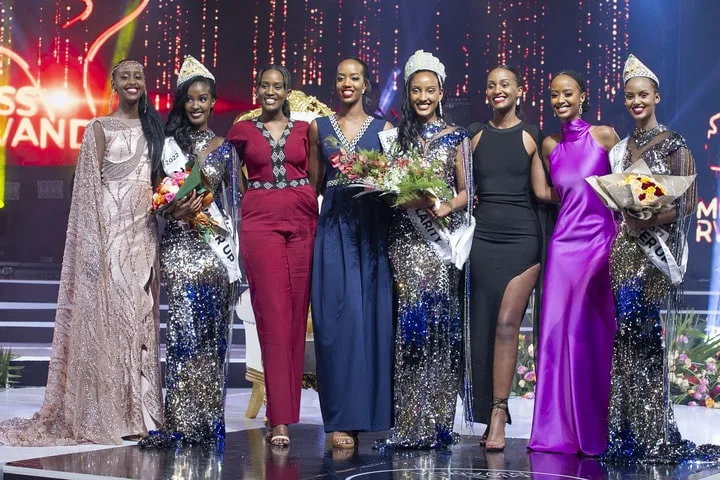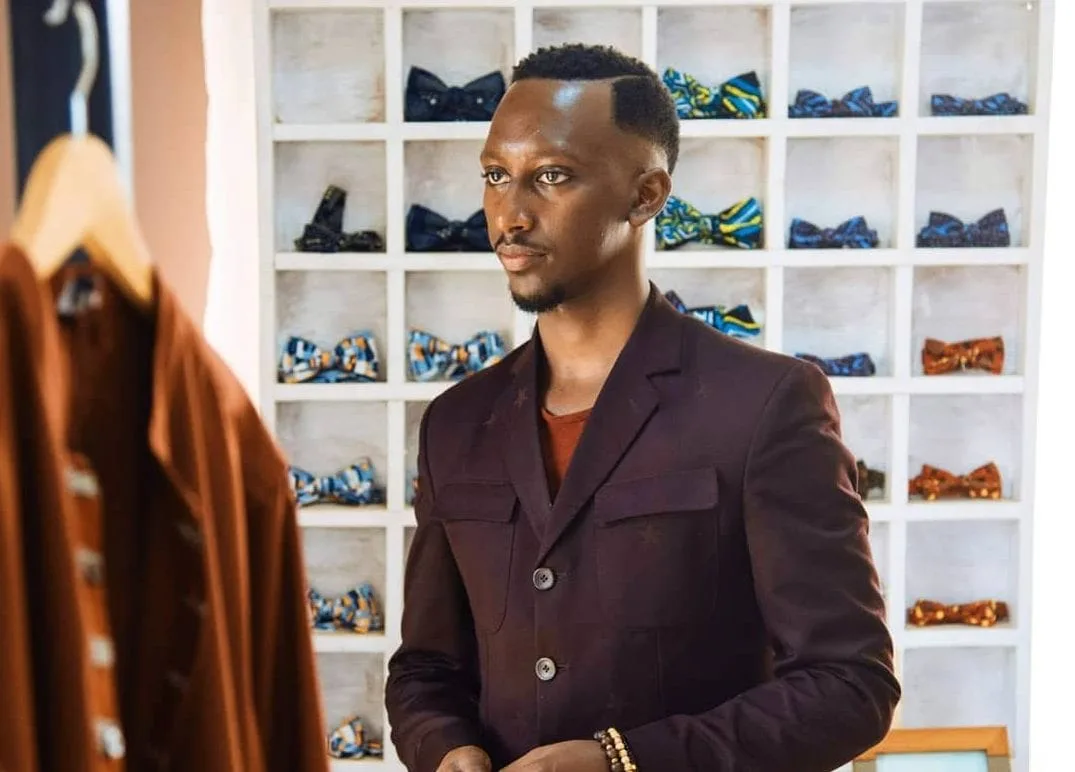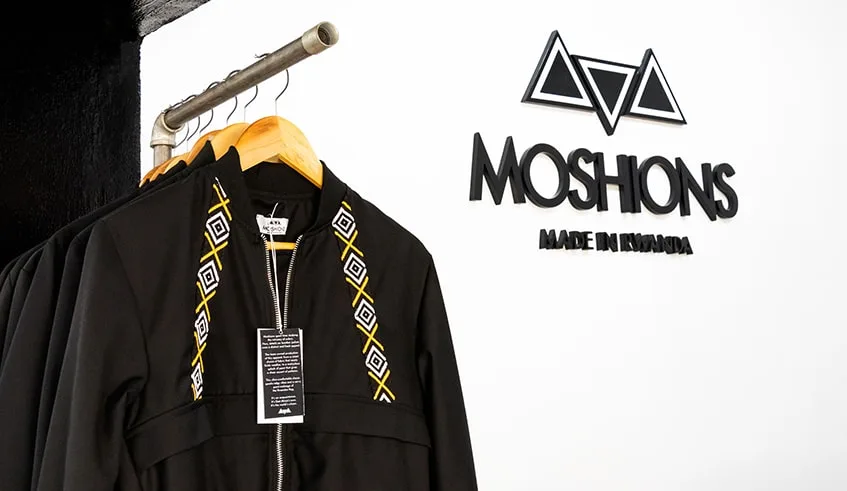The fashion industry in Rwanda, like other sectors, suffered many losses last year. The industry was hit by the pandemic with a big drop in sales registered globally, as the demand for clothes and fashion accessories went down.
With the lockdown measures that were put in place by the government taking effect, fashion designers couldn’t organize any events which had been planned, hence setting them back.
Despite the challenges, this didn’t hinder new fashion entrants to showcase and exhibit unique styles. We bring you the fashion highlights of 2020;
Ikamba Apparel
This is a lately launched ‘Made in Rwanda’ clothing brand with a touch of Vogue and a taste for African design, It was founded by Gratia Teta, Deborah Mwanganjye, and Kessy Mugabo Kayiganwa from African Leadership University (ALU).
Ikamba Apparel comprises three young students who are hungry to follow their dream, thus eventually creating a unity that led to a business. They are all students pursuing International Business Trade at African Leadership University (ALU).
The brand caters to all age groups and targets both middle and high-class clothing styles; epitomized via an assortment of elegant and streetwear.
https://www.instagram.com/p/CEJ8Vl0BjIT/?utm_source=ig_embed
Kezem clothing brand
23-year-old Emmanuel Keza Niyonsenga is the brains behind Kezem, a new Rwandan clothing brand that ‘communicates the Rwandan story and Africa in general’.
Though his skill is mostly self-taught, he also got additional training from Rwanda Clothing, a local fashion brand where he was skilled in the significance and power of a brand, and how to work with clients to satisfaction.
He has designed many of the Iwacu Muzika festival artistes, many of whom are Art Rwanda Ubuhanzi colleagues and celebrities like Alyn Sano, among models and other celebrities.
https://www.instagram.com/p/CBn3vqXBhRu/?utm_source=ig_embed
‘Rufuku’ collections
Laurent Nsengumuremyi, also known as Nelly, 25, also sought means to penetrate the fashion industry, which is why he invented ‘Rufuku’.
‘Rufuku’ is a fabric of old-fashioned blankets that he uses to make all sorts of attires, from blazers, cardigans, to skirts, dresses, and many others.
Zoi
Zoi, which is Greek for ‘life’, is a clothing line that was started by the Mackenzies. This is a group of five young ladies namely Naomie Nishimwe, who is the current Miss Rwanda 2020, Kelly Uwineza, Kathia Kamali Uwase, Brenda Iradukunda and Pamela Loana Uwase. They are all related.
Their brand that was launched on October 9 produces clothes for all genders, with the choice to scale up an outfit liable on the size of the customer.
The Mackenzies use social media to market and advertise their own clothing line, acting as models for their own designs. The demand for their clothes was enormous which pushed them to work harder.
Moshions goes international
Local fashion house “Moshions” is not only focusing on the local market but also eyeing the international market in the most effective way.
Moshions’ aim is to create a traditionally enthused frill brand that has roots in Rwanda as well as Africa.
The brand received criticism recently when it unveiled its online store, as many people accused them of setting high prices for clothes that they think are not supposed to be expensive.
According to Dany Rugamba, the business manager at Moshions, the people who cannot afford a cloth will certainly say something is expensive, even when there are many others who can afford it.
To him, the same feedback was given even when the fashion house was just starting, yet people actually buy. It is this support that has grown the brand.
Fashion brands that featured on Beyoncé Knowles’ website
Four Rwandan fashion brands; House of Tayo, Inzuki Designs, Moshions, and Haute Baso on August 2, were amazed to see their creations listed among the top African fashion brands that featured on American singer Beyoncé Knowles’ website.
Most of the designers said that there was no application made to feature on the platform, but their designs were suggested by their customers and famous fashion stars in Africa and beyond.
East Africa Fashion Awards
Two Rwandan media personalities, Makeda Mahadeo and Christelle Kabagire were nominated for East Africa’s Most Stylish Female Host of the Year, at the East Africa Fashion Awards.
The event took place in Dar es Salaam, Tanzania in March. Makeda is a Kigali-based CNBC Africa journalist, media personality, deejay, and emcee, while Christelle is known for her fashion show ‘In Style’, which airs on Rwanda Television every Tuesday and Wednesday. The event sought to distinguish the most outstanding achievements of individuals and brands that contributed to the growth of the fashion industry in East Africa.
Face masks
When the government announced the compulsory wearing of face masks in public due to the Covid-19 outbreak, many fashion designers and manufacturers came on board to produce masks. While face masks range from Rwf300 (surgical masks) to about Rwf1, 000 (cotton face masks) for different sellers, Moshions drew a lot of reaction from the public as their face masks go for Rwf10, 000.
https://www.instagram.com/p/B_zYmd_gTGR/?utm_source=ig_embed
After thorough training on producing mask equipment and inspections done by Rwanda FDA, more than 20 domestic companies were authorized to repurpose facilities into the production of PPEs, in April. Although their worry at that time was that the demand for the equipment would exceed their supply, it is the opposite. By August, 40 local manufacturers had unsold stocks of over three million face masks.
Content courtesy of The New Times Rwanda & Nairobi fashion hub
Like this:
Like Loading...






